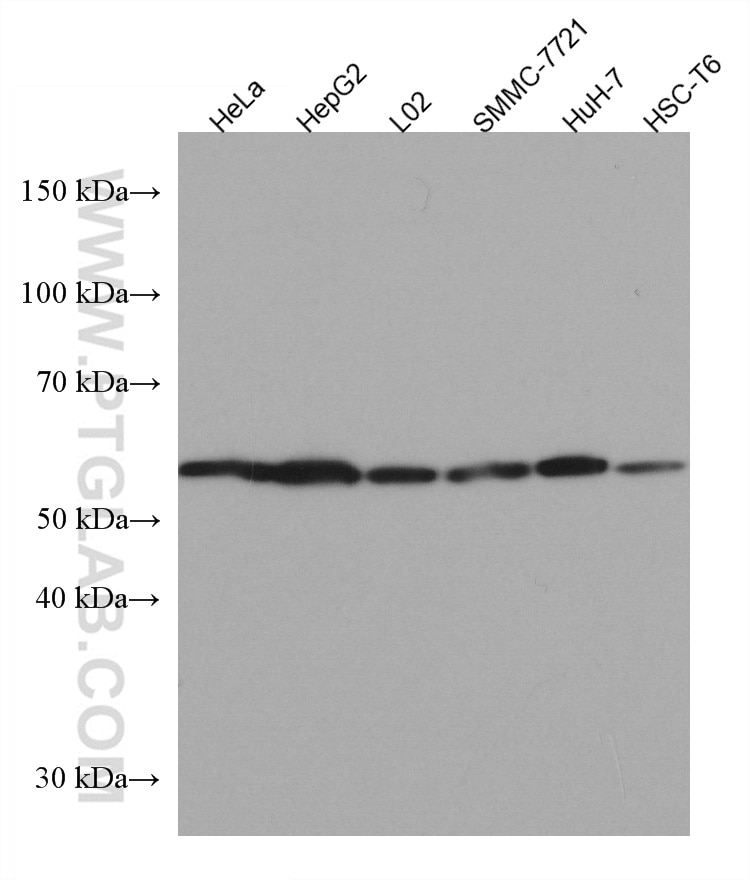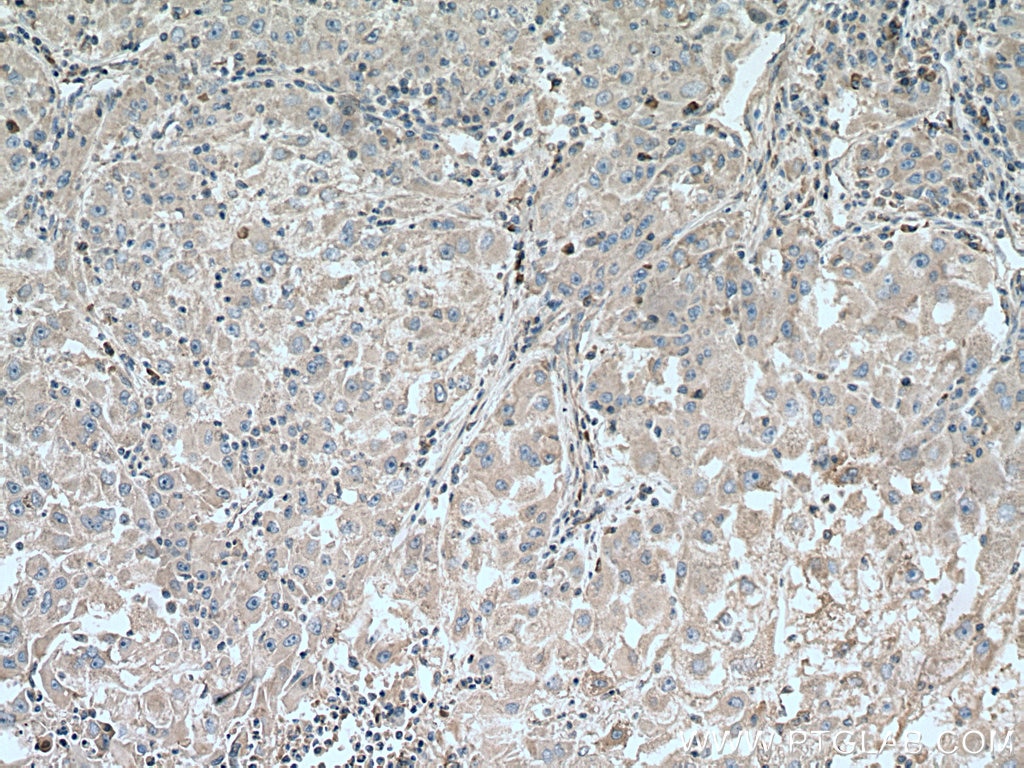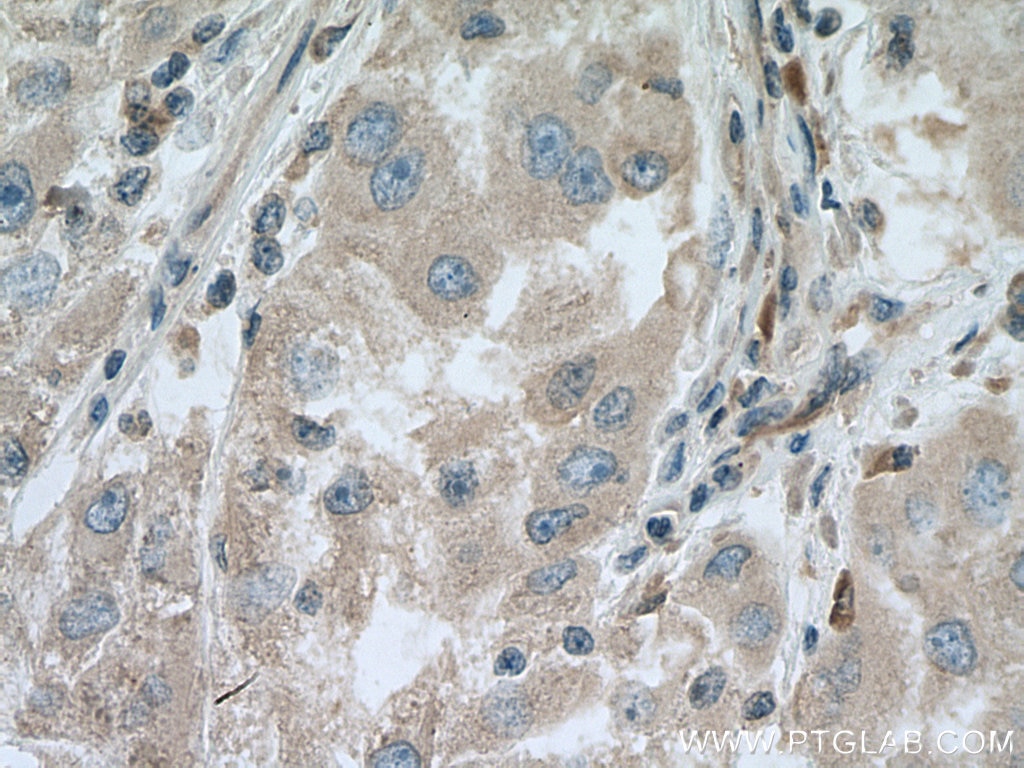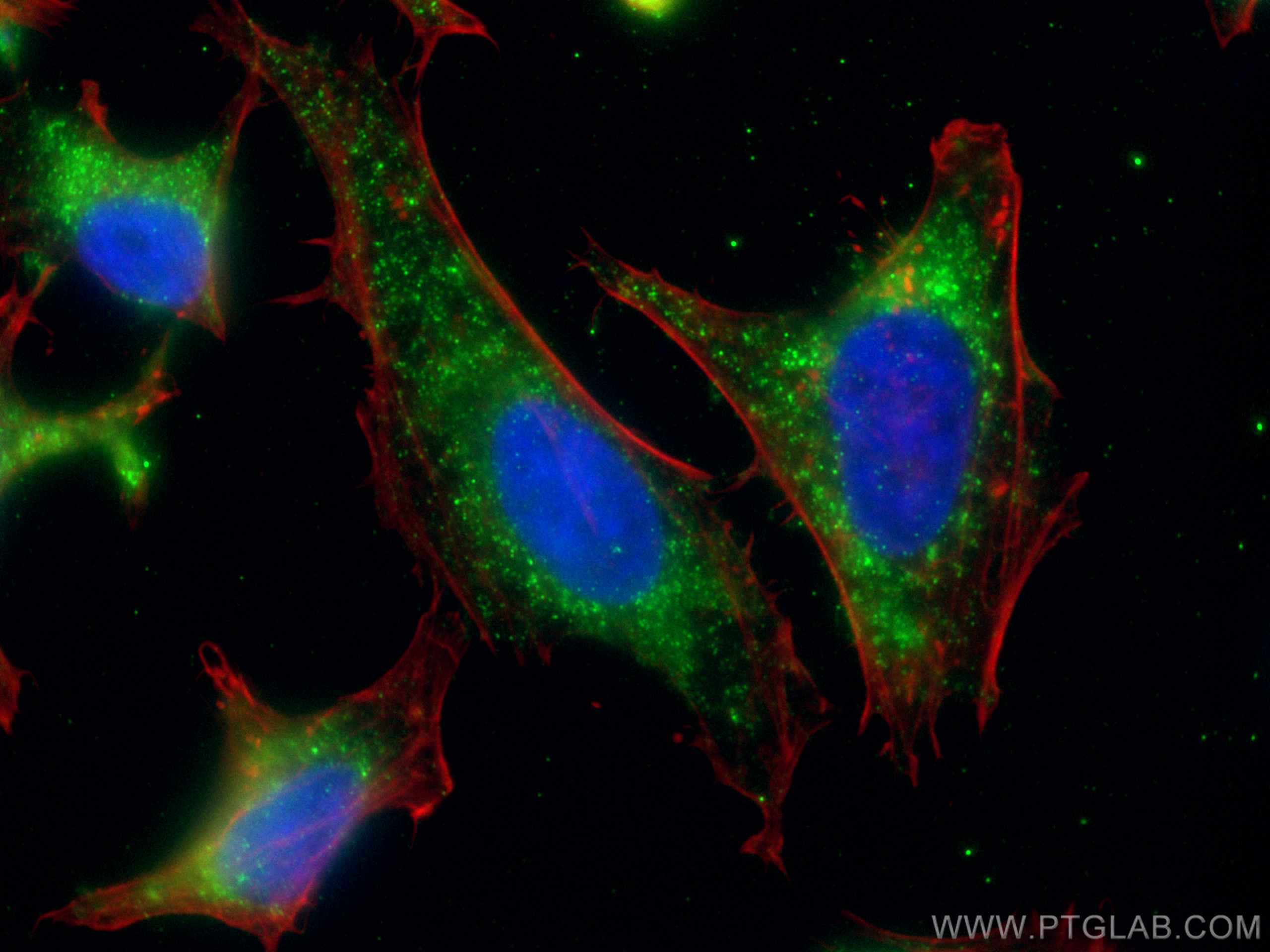PNPLA3 Monoklonaler Antikörper
PNPLA3 Monoklonal Antikörper für IF, IHC, WB, ELISA
Wirt / Isotyp
Maus / IgG1
Getestete Reaktivität
Hausschwein, human, Ratte
Anwendung
WB, IHC, IF, ELISA
Konjugation
Unkonjugiert
CloneNo.
1D2B11
Kat-Nr. : 67369-1-Ig
Synonyme
Galerie der Validierungsdaten
Geprüfte Anwendungen
| Erfolgreiche Detektion in WB | HeLa-Zellen, HepG2-Zellen, HuH-7-Zellen, L02-Zellen, SMMC-7721-Zellen |
| Erfolgreiche Detektion in IHC | humanes Leberkarzinomgewebe Hinweis: Antigendemaskierung mit TE-Puffer pH 9,0 empfohlen. (*) Wahlweise kann die Antigendemaskierung auch mit Citratpuffer pH 6,0 erfolgen. |
| Erfolgreiche Detektion in IF | HeLa-Zellen |
Empfohlene Verdünnung
| Anwendung | Verdünnung |
|---|---|
| Western Blot (WB) | WB : 1:2000-1:10000 |
| Immunhistochemie (IHC) | IHC : 1:250-1:1000 |
| Immunfluoreszenz (IF) | IF : 1:400-1:1600 |
| It is recommended that this reagent should be titrated in each testing system to obtain optimal results. | |
| Sample-dependent, check data in validation data gallery | |
Produktinformation
67369-1-Ig bindet in WB, IHC, IF, ELISA PNPLA3 und zeigt Reaktivität mit Hausschwein, human, Ratten
| Getestete Reaktivität | Hausschwein, human, Ratte |
| Wirt / Isotyp | Maus / IgG1 |
| Klonalität | Monoklonal |
| Typ | Antikörper |
| Immunogen | PNPLA3 fusion protein Ag27407 |
| Vollständiger Name | patatin-like phospholipase domain containing 3 |
| Beobachtetes Molekulargewicht | 53 kDa |
| GenBank-Zugangsnummer | BC065195 |
| Gene symbol | PNPLA3 |
| Gene ID (NCBI) | 80339 |
| Konjugation | Unkonjugiert |
| Form | Liquid |
| Reinigungsmethode | Protein-G-Reinigung |
| Lagerungspuffer | PBS mit 0.02% Natriumazid und 50% Glycerin pH 7.3. |
| Lagerungsbedingungen | Bei -20°C lagern. Nach dem Versand ein Jahr lang stabil Aliquotieren ist bei -20oC Lagerung nicht notwendig. 20ul Größen enthalten 0,1% BSA. |
Hintergrundinformationen
PNPLA3 belongs to a family of proteins that share a domain that was first identified in patatin, a major soluble protein of potato tubers with nonspecific acyl hydrolase activity. The domain differs from classical lipases by employing a catalytic dyad (Ser-Asp), rather than a catalytic triad, to effect hydrolysis. PNPLA3 is expressed primarily in liver and adipose tissue, in which it partitions to membranes and lipid droplets. Real-time PCR of cDNA from human tissues indicated that PNPLA3 expression was highest in the liver, followed by skin and adipose tissue. PNPLA3 is expressed at the highest levels in adipose tissue of mice. The PNPLA3 protein was expected at 50-70 kDa, as observed; the additional band at approximately 130-150 kDa is a oligomer bands. (PMID: 20385813, PMID: 24931521, PMID: 23023705)
Protokolle
| Produktspezifische Protokolle | |
|---|---|
| WB protocol for PNPLA3 antibody 67369-1-Ig | Protokoll herunterladen |
| IHC protocol for PNPLA3 antibody 67369-1-Ig | Protokoll herunterladen |
| IF protocol for PNPLA3 antibody 67369-1-Ig | Protokoll herunterladen |
| Standard-Protokolle | |
|---|---|
| Klicken Sie hier, um unsere Standardprotokolle anzuzeigen |





